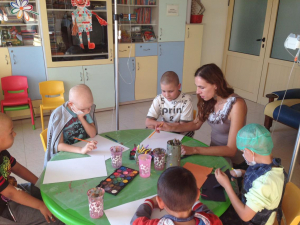
ARTON PROGRAM - The therapeutic power of the group
Creative projects involving group work - general musical performance or group painting, collage, sculpture - are useful in helping to explore and strengthen social...
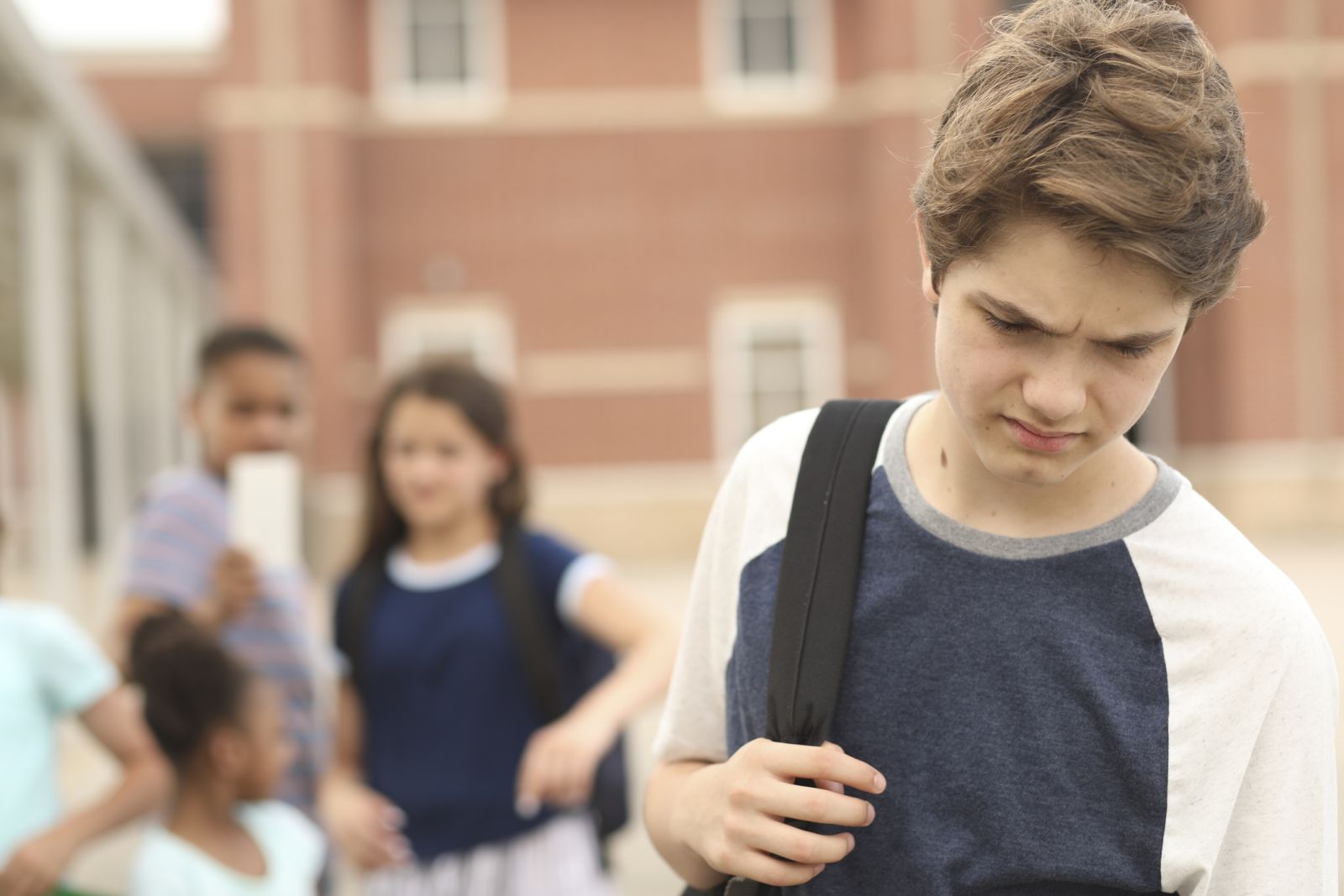
For most adults minor embarrassments are just a part of life — annoying, but inevitable and hardly a big deal. But for many kids, embarrassing experiences can be very upsetting and, in some cases, may lead to serious issues like anxiety and avoidance.
We can’t protect our children from embarrassment, but we can help them build the resilience and confidence they need to deal with it in a healthy way.
Kids look to parents for cues on how to manage difficult emotions like embarrassment. “As parents we set the behavioral tone for our kids,“ says Dr. Rachel Busman, a clinical psychologist at the Child Mind Institute, “So when we’re helping children learn healthy emotional habits, the first step is to consider how we handle similar situations in our own lives.”
Taking a look at how you deal with embarrassing experiences at home will help you set an example of healthy behavior for your child.
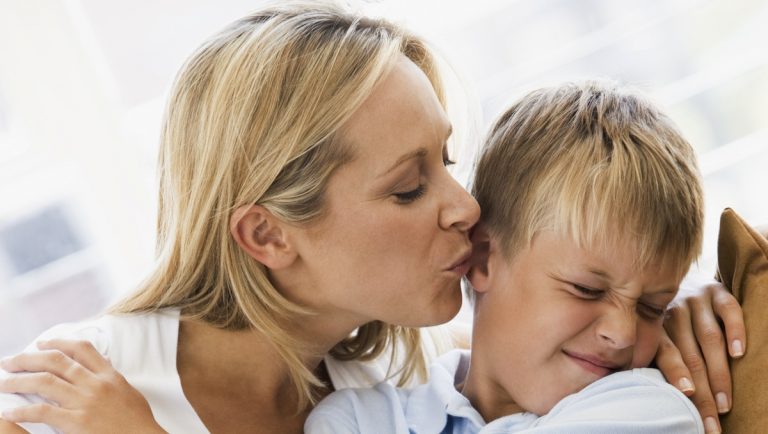
There’s no yardstick for embarrassment. Something that sounds small to you — giving the wrong answer in class for example — may feel huge to your child.
If your child is embarrassed it’s important not to dismiss his feelings, even if the situation that caused them sounds like no big deal.
“We naturally want to downplay embarrassing experiences by saying things like ‘it’s not as bad as you think,’” says Dr. Busman. “But when kids are experiencing these big, really upsetting emotions that can feel like a brush-off.”
If your child comes home upset, what he doesn’t need is for you to get upset, too, or angry on his behalf. (“That sounds awful!” “Those kids should be ashamed of themselves for laughing!”) And don’t assume that he wants or needs you to do something about it. When a self-concious child worries that a parent will overreact or make an embarrassing situation worse, he’s likely to be reluctant to share his feelings.
“When a child is hurting, as parents we want to do all we can,” says Dr. Busman, “but if your kid is feeling embarrassed, heaping more attention on the situation can make it worse, not better.”
If your child shares an embarrassing situation with you, take care to validate her feelings, but don’t dwell on them or over comfort. Instead, praise positive coping skills. If she made a mistake during a piano recital, praise her for staying focused and finishing the piece. Reframing negative experiences will help your child identify healthy reactions and practice them, building what we call metacognitive skills. You could say: “I’m so sorry that happened today. I know it was upsetting but I am so proud of how you handled it. It takes a really brave person to keep playing when things are hard.”
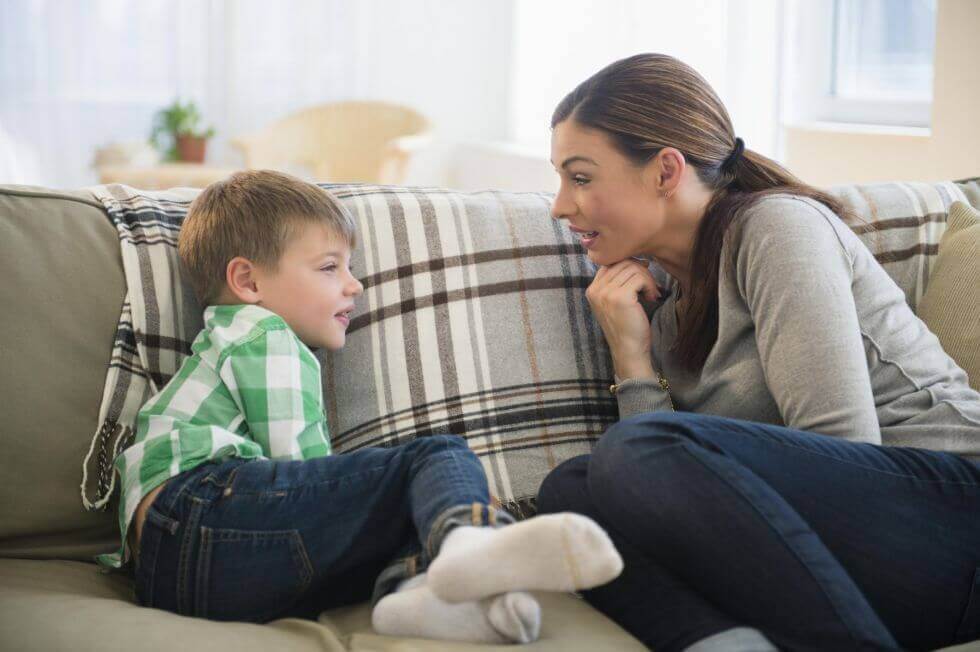
If your child fell in gym class and other kids laughed, it may seem to him as though everyone saw, everyone laughed and no one will ever forget it — ever.
Of course you know that’s not true but kids, especially younger ones, often struggle to see beyond their own feelings, which can make embarrassing situations feel like front-page news. “Kids can be egocentric,” explains Dr. Busman, “so when something embarrassing happens to your child it can feel like everyone is thinking about it as much as he is, when in reality most kids will have moved on by the next day.”
Learning to put his feelings and experiences in context will help your child gain perspective and build resilience.
Unpack: Help your child take a metacognitive approach to his feelings by asking open-ended questions. For example: Your child isn’t the only one who’s ever fallen down in gym class, so you could begin by asking how he felt when other kids did the same thing. Learning to put his own experiences in context can help your child start to see embarrassing situations from a better angle.
Helping your child gain perspective without minimizing his feelings will make it easier for him to move past negative experiences — and give him an important tool for building self-awareness in the future.
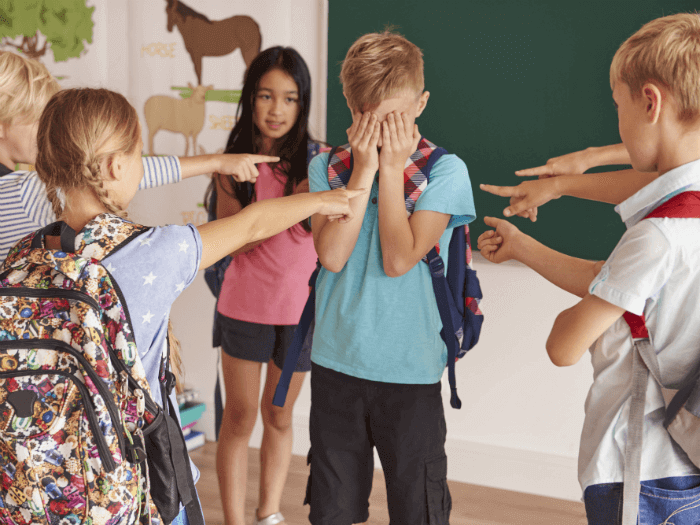
Embarrassing situations happen to everyone from time to time, but if your child regularly comes home from school upset, or has a major change in behavior or mood, there may be something more serious going on.
For some kids, fear of being embarrassed itself can become a serious issue. If a child seems to live in perpetual fear of embarrassment — even when there’s no obvious reason to worry — she may be experiencing social anxiety.
Social anxiety usually occurs in children who’ve reached adolescence, but it can develop earlier. A child with social anxiety panics at the thought of participating in day-to-day activities because she worries chronically about what other people will think of her, obsesses on how she appears to others, or fears making a mistake.
These fears can be very debilitating. For kids who see potential for humiliation at every turn, even basic interactions can feel like a minefield, and social, school and personal interactions often suffer. Withdrawal is common, but kids with social anxiety are also prone to lashing out when the threat of embarrassment overwhelms them.
The good news is that kids who develop social anxiety respond well to cognitive behavioral therapy, and with help can return to their normal activities.
It’s natural to want to protect your child from experiences that are hurtful or upsetting, but in the end, the best way for your child to build coping skills is through experience — with a side of support.
“Being embarrassed is part of life,” says Dr. Busman. “It’s tempting to try to shield our kids from difficult things, but in reality learning how to deal with those experiences in a healthy way is a skill that will serve your child well as he grows up.”
Article re-posted from https://childmind.org/

Creative projects involving group work - general musical performance or group painting, collage, sculpture - are useful in helping to explore and strengthen social...
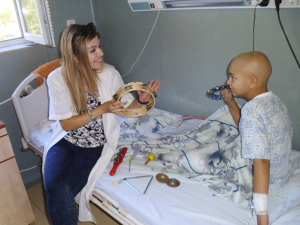
In the ARTON Program our team of oncopsychologists, art therapists and music therapists develops the process of children's creativity as a process of...
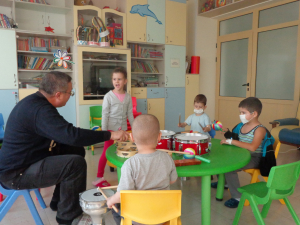
In ARTON sessions, creating a piece of music or a song is an emotional experience of coping and satisfaction for the participating children. They make friends with...
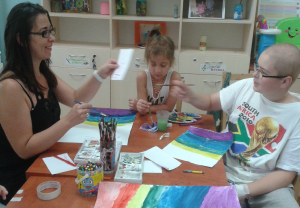
Painting provides patients with a spontaneous, plastic method of depicting thoughts and experiences. Painting with paints is not as structured as with pencil or...










